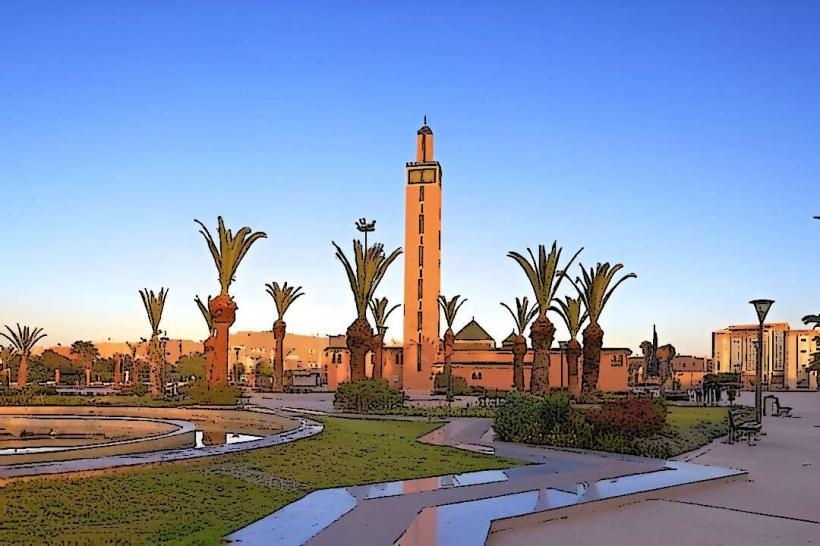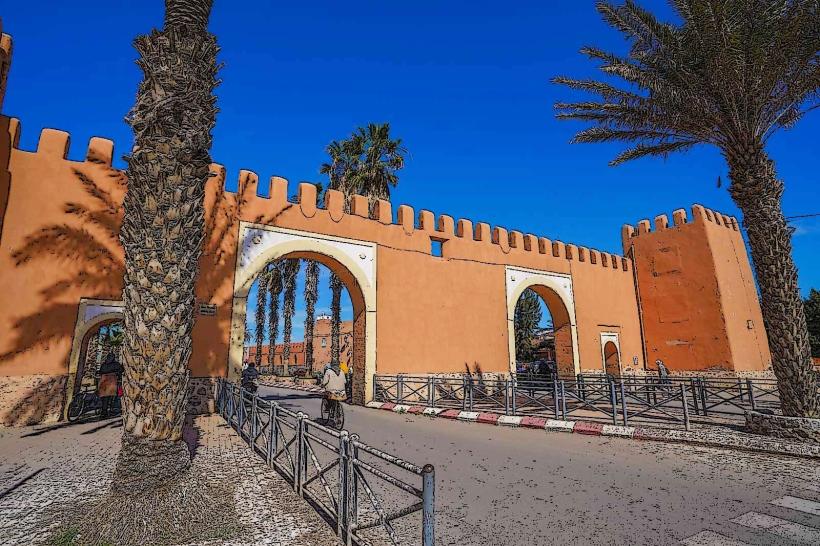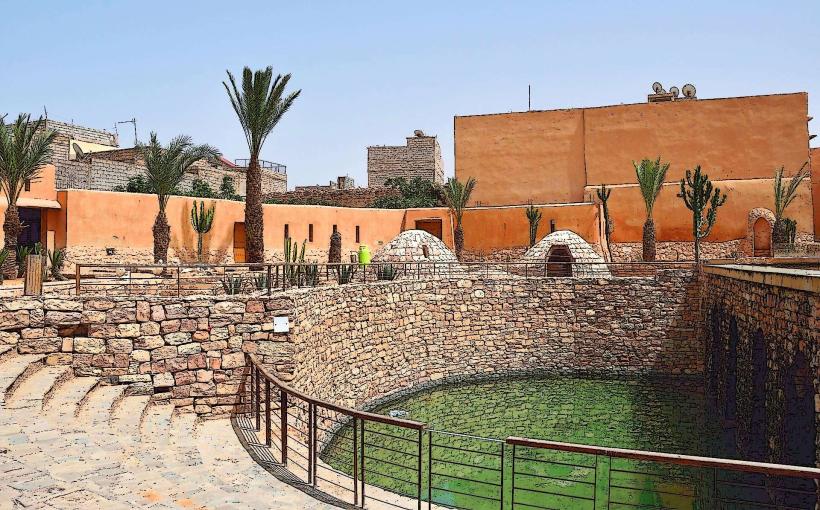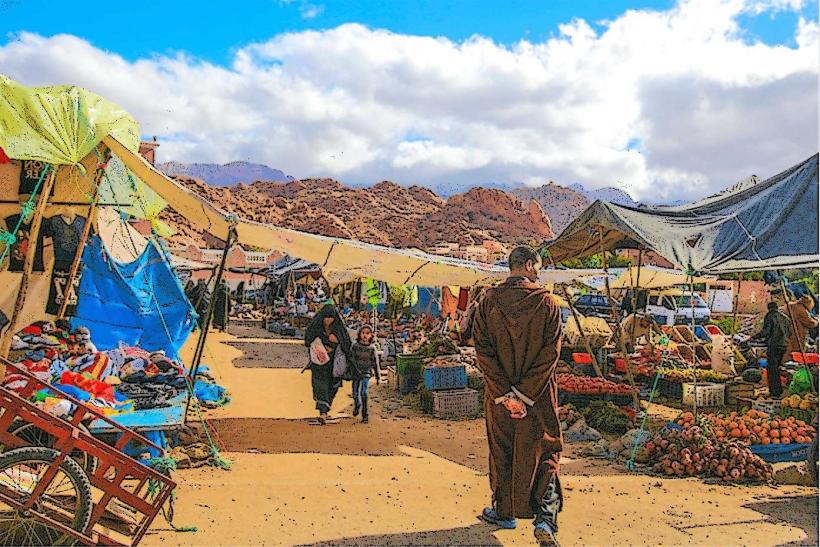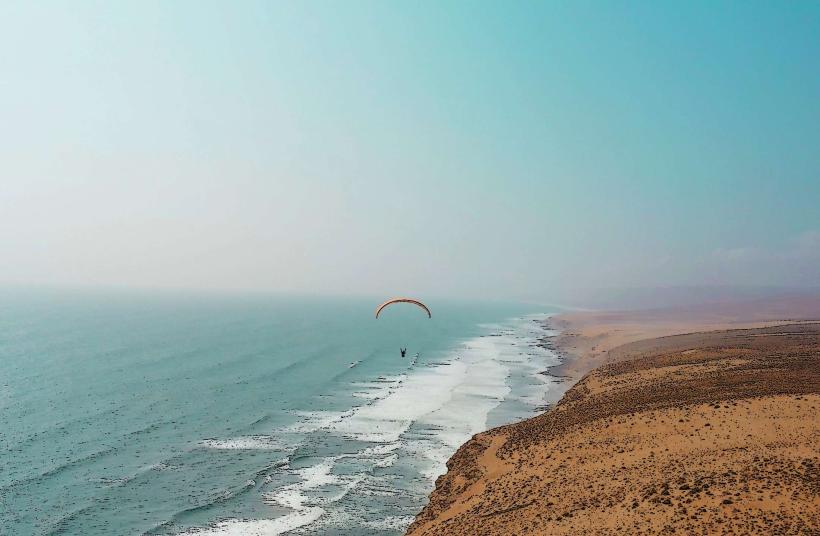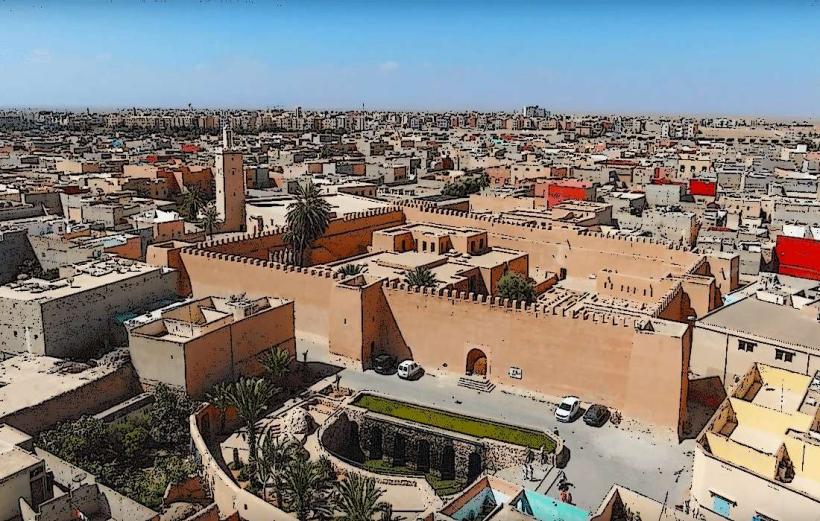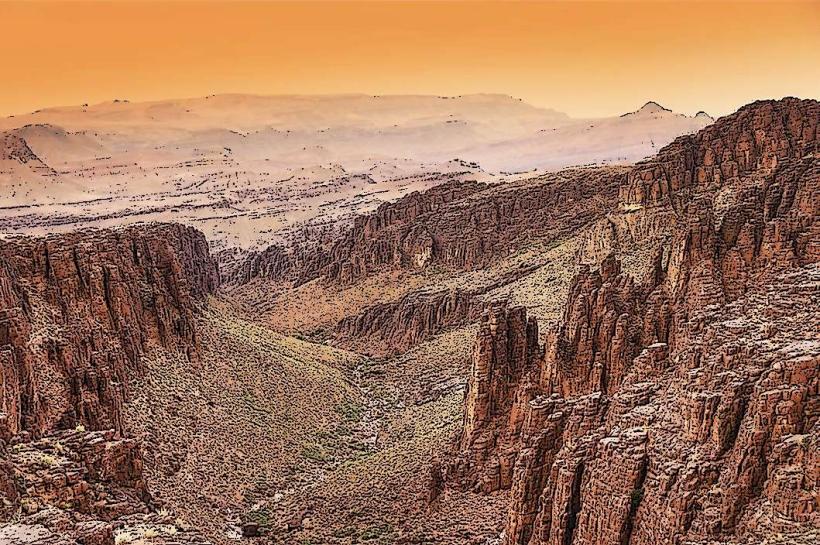Information
Landmark: Oasis of TiznitCity: Tiznit
Country: Morocco
Continent: Africa
Oasis of Tiznit, Tiznit, Morocco, Africa
The Oasis of Tiznit, though less famous than Morocco’s larger Saharan oases, is a quiet, green refuge on the edge of the arid landscapes surrounding the city. Located near the medina and stretching outward into rural zones, this oasis reflects the ancestral water management and agricultural traditions of the region. It’s not a single compact oasis like those in the Draa Valley, but rather a network of palm groves, gardens, wells, and irrigation channels interwoven with village life.
Here is a detailed overview of the Oasis of Tiznit:
1. Geographic and Natural Context
Located just outside the fortified Medina of Tiznit, the oasis begins where the urban area gives way to traditional agricultural plots, known as "agdal" in Amazigh.
The oasis stretches along wadi beds (dry rivers) that fill occasionally during seasonal rains and nourish the land.
Its landscape features:
Palm trees (mainly date palms)
Olive and almond trees
Fig trees and citrus groves
Cactus barriers and native scrub, which help prevent erosion
2. Agricultural Use and Irrigation
The oasis is divided into individual plots owned or tended by local families, using techniques passed down for generations.
Farmers rely on:
Underground water channels (khettara) and stone wells
Gravity-fed irrigation systems
Seasonal floodwaters, captured and redirected using traditional methods
Cultivation focuses on subsistence farming:
Barley, wheat, and corn
Vegetables like tomatoes, onions, and carrots
Medicinal herbs and wild plants
3. Cultural and Community Value
The oasis is more than just farmland-it’s a community space, often maintained collectively.
For many families, it represents a link to ancestral identity, especially for Amazigh people with rural roots.
It provides:
Food security
Medicinal plants
Grazing for animals
Shade and microclimate regulation
4. Biodiversity and Ecology
Though semi-arid, the oasis supports a range of life:
Birds such as hoopoes, bulbuls, and bee-eaters
Insects essential for pollination
Small reptiles and amphibians in wetter zones
Date palms not only yield fruit but also serve as shelter for birds and protect lower crops from the harsh sun.
5. Traditional Architecture and Structures
Scattered through the oasis are:
Stone water basins
Low mud-brick walls
Irrigation gates (seguias) built from carved stone or clay
Storage huts and shelters for workers
Some old marabouts (saints’ shrines) are located nearby, serving as landmarks and spiritual symbols for locals.
6. Access and Visitor Experience
Easily accessible on foot from the southern or eastern outskirts of the city.
A pleasant destination for:
Morning or evening walks
Birdwatching
Photography
Meeting local farmers, who often enjoy sharing stories or explaining their work
The oasis remains untouched by mass tourism, offering a genuine connection to rural Moroccan life.
7. Preservation and Challenges
The oasis faces modern threats:
Water scarcity, due to deeper wells and urban expansion
Climate change, reducing rainfall and shifting planting seasons
Abandonment, as younger generations move to urban centers
However, local initiatives and community efforts continue to preserve the oasis through traditional knowledge and eco-agricultural practices.
8. Educational and Ecotourism Potential
With investment and care, the oasis could serve as a model for sustainable land use in semi-arid environments.
Potential for:
Educational tours on water conservation and agroecology
Volunteer projects focused on reforestation and garden renewal
Cultural workshops on traditional Amazigh farming methods
9. Conclusion
The Oasis of Tiznit is a living testament to Morocco’s rural resilience and ecological ingenuity. Though modest in scale, it carries profound cultural, spiritual, and practical value. It reminds visitors that life in the desert margins is not just possible, but rich in tradition, balance, and respect for nature. A walk through the oasis is a step into the heart of Amazigh land stewardship-quiet, enduring, and deeply rooted.

